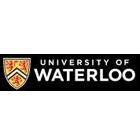- News and articles
- Find usIDP AustraliaIDP BahrainIDP BangladeshIDP CambodiaIDP CanadaIDP ChinaIDP EgyptIDP GhanaIDP Hong KongIDP IndiaIDP IndonesiaIDP IranIDP JordanIDP KenyaIDP KoreaIDP KuwaitIDP LebanonIDP MalaysiaIDP MauritiusIDP Middle EastIDP NepalIDP New ZealandIDP NigeriaIDP OmanIDP PakistanIDP PhilippinesIDP Saudi ArabiaIDP SingaporeIDP Sri LankaIDP Taiwan, ChinaIDP ThailandIDP TurkeyIDP UAEIDP VietnamIDP Corporate
- Social
- English
- Where we operate
- Courses
- Scholarships
- IELTS
- About IDP
- Student Essentials
- News and articles
- Find us
- Find us
- Find nearest IDP offices
- IDP Australia
- IDP Bahrain
- IDP Bangladesh
- IDP Cambodia
- IDP Canada
- IDP China
- IDP Egypt
- IDP Ghana
- IDP Hong Kong
- IDP India
- IDP Indonesia
- IDP Iran
- IDP Jordan
- IDP Kenya
- IDP Korea
- IDP Kuwait
- IDP Lebanon
- IDP Malaysia
- IDP Mauritius
- IDP Middle East
- IDP Nepal
- IDP New Zealand
- IDP Nigeria
- IDP Oman
- IDP Pakistan
- IDP Philippines
- IDP Saudi Arabia
- IDP Singapore
- IDP Sri Lanka
- IDP Taiwan, China
- IDP Thailand
- IDP Turkey
- IDP UAE
- IDP Vietnam
- IDP Corporate
- Social
- Language Switcher
- IDP Education /
- Colleges and Universities /
- Canada /
- University of Waterloo /
- Master of Arts in Global Go...


Location
Canada
Qualification
Masters Degree
Fees
CAD23088
(2025)
Duration
16 Month(s)
Next intake
08 September 2025
Entry Score
7.5
IELTSCourse info
The research cluster on Global Justice and Human Rights explores the study of the relationship between global governance, global justice, and human rights. The group brings students, faculty, activists and practitioners to critically engage research on such topics as decolonization, the state and global governance; anti-black and indigenous racism in governance theory and practice; the rights of people with disabilities; south-south relations and the ‘rewriting’ of ‘rights’; expert practices and global justice activism; human rights as discourse and relation; resistance, resilience, and humanitarianism response; redistributive justice, recognition and reconciliation.
- Scholarships View all scholarships
- Internships
Entry requirements for University of Waterloo
Successful completion of at least one introductory course in economics at the university level before commencing the program.
Experienced professionals in the private or public sectors will be considered for admission, but additional course work may be required.
Supervisors
Review the finding a supervisor resources
Resume
Supplementary information form (SIF)
The SIF contains questions specific to your program, typically about why you want to enrol and your experience in that field. Review the application documents web page for more information about this requirement
If a statement or letter is required by your program, review the writing your personal statement resources for helpful tips and tricks on completion
Transcript(s)
Writing sample
References
Three references are required, at least two academic
Proof of English language proficiency, if applicable
TOEFL 100 (writing 26, speaking 26), IELTS 7.5 (writing 7.0, speaking 7.0)
Application Deadline
The application deadline isn't available Speak to an IDP counsellor for more detailed information
Further information
If you aren't eligible for the above entry requirements, you might have a chance to explore pathway options at University of Waterloo. If you want to find out more, speak to our counsellors.
THE World Ranking
163rd / 1250
THE World RankingWhat our students think
We’ve haven’t received any reviews for this institution yet.
Recommended for you
- Graduate Certificate
- Ottawa , Canada
- Next intake:09/2025
- Entry Score: IELTS 6.5
- CAD18149 (2025)
- Graduate Certificate
- Ottawa , Canada
- Next intake:05/2025
- Entry Score: IELTS 6.5
- CAD18728 (2025)
- Graduate Certificate
- Kitchener , Canada
- Next intake:09/2025
- Entry Score: IELTS 6.5
- CAD15383 (2025)
- Graduate Certificate
- Toronto , Canada
- Next intake:09/2025
- Entry Score: IELTS 6.5
- CAD13977 (2025)
- THE World Ranking:801
- Masters Degree
- Toronto , Canada
- Next intake:09/2025
- Entry Score: IELTS 6.5
- CAD20124 (2025)
- THE World Ranking:801
- Masters Degree
- Toronto , Canada
- Next intake:09/2025
- Entry Score: IELTS 6.5
- CAD20124 (2025)
- Graduate Certificate
- Kitchener , Canada
- Next intake:09/2025
- Entry Score: IELTS 6.5
- THE World Ranking:801
- Masters Degree
- Toronto , Canada
- Next intake:09/2025
- Entry Score: IELTS 6.5
- CAD20124 (2025)
Your action plan
Step 1
Shortlist your courses
Choose the best three courses you’re most likely to pursue.
Step 2
Check your eligibility
Get an instant in-principle offer for courses with the IDP FastLane tag.
Step 3
Apply through IDP Live
Fill out the form once and use it to apply to multiple courses.
How does IDP FastLane work?
With the FastLane 'Offer in Principle', you'll know in minutes if you'll be accepted!
Select an institution and course
Create your academic profile
Submit your application for an 'Offer in Principle'
Your chosen institution(s) will send you a decision in minutes!
Get ready to apply with an expert counsellor




